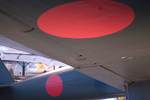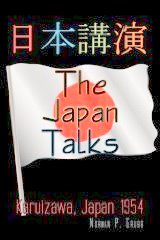
SHINZO Abe is planning a revolution in Japan which will see the return of a full-strength imperial army for the first time since the Second World War.
After securing the Liberal Democratic Party's presidency last week, he is now certain to succeed Junichiro Koizumi as prime minister, and he clearly has an eye on re-examining the post-war era.
In a race that was his to lose, Abe - who will be Japan's first prime minister born after the Second World War - avoided specific comments about how he would pursue economic changes or how he would repair Japan's strained relations with China and South Korea.
Instead, he spoke of revising the United States-imposed Constitution, which forbids Japan from having a full-fledged military, passing legislation to allow Japanese troops to be deployed overseas and making it possible for Japan to exercise the right to collective self-defence with the US.
He also wants to revise the other legal document of the post-war American occupation, the Fundamental Law of Education, and emphasise moral values, patriotism and tradition in schools.
"By entrusting our national security to another country and putting a priority on economic development, we were indeed able to make great material gains," Abe wrote of the post-war era in his campaign book, Toward A Beautiful Country. "But what we lost spiritually - that was also great."
Abe, who will turn 52 on Thursday, received two-thirds of the votes in the election for the presidency of the Liberal Democratic Party last week. Because of the party's grip on the lower house of parliament, which chooses the prime minister, Abe is now assured of succeeding prime minister Junichiro Koizumi in a parliamentary session on Tuesday.
The emergence of a prime minister with no personal experience of the Second World War is considered a turning point in Japan, where the absence of a consensus on the war still troubles relations with the rest of Asia.
Considered politically inexperienced, Abe rose to political stardom by talking tough on North Korea, China and national security. In Japan and in the rest of Asia, Abe is regarded as even more hawkish and conservative than Koizumi.
To his supporters, Abe is a politician unburdened by Japan's past, capable of forging a newly independent and strong path for the nation. To critics, he is a potentially dangerous ideologue ready to jettison the post-war values that have brought stability, peace and wealth to Japan.
Click on the title for the rest of the story.........














No comments:
Post a Comment